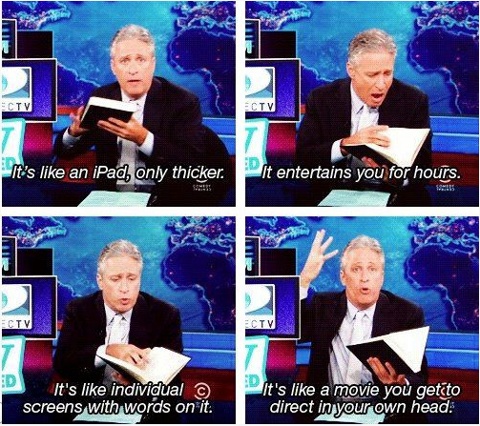
The days of deep reading are over…for most, anyway. The internet is a wonderful thing, and yet most of the technologies that have sprung up as a result of it are fragmenting our time and attention; the result being very real, tangible changes to our neurobiological structure that very closely resemble addiction. Dopamine hits run rampant: incoming email alerts, pinging texts, the little red number telling you how many notifications you have each time you refresh the page. They all fly in on their own time and agenda, barging in when they wish, irregardless of your own schedule and mental bandwidths. And yet…we feel the itch at the backs of our skulls, wanting more. We need more.
To sit down and read a book…only a book? No bells, pings, dings, ringtones, and the like going on all at once? *itch* Surely a quick peak at my email is ok… Email.*dopamine rush* Check Facebook. *another hit* Ahhhh…better.
We are all struggling with this, even those who make a living within the world of books. The founder of LibriVox and Pressbooks wrote an intriguing piece about his struggles on Medium titled, “Why Can’t We Read Anymore?”
“It just seems such an awful lot of words to concentrate on, on their own, without something else happening…”
Since these brain changes affect our ability to focus on any one thing for any meaningful length of time, it is not just reading that is affected but our work and our relationships as well. The craving for constant novelty has hampered our ability to tolerate any level of boredom, even for just a few seconds: witness the phones come out at a restaurant table the moment there is a 10 second lull in the conversation.
So how about you? How are you doing? Did you manage to get this far without going for a digital hit? (If you got this far at all.) My aim in asking this is not to shame, but rather, to help bring an awareness if only for a moment.
Why Does the Loss of Deep Reading Matter?
The ramifications of internet-induced, ADHD-like symptoms in the various areas of life are vast, and many are yet to be revealed. But for now, I specifically want to hone in on reading.
What is lost when students skim purely for information and, ironically, ignore both the fine details and the bigger picture? What is lost when adults choose not to read books at all?
Humility. Empathy. Compassion. Self-awareness and understanding. That is what is lost, among other things. Reading doesn’t create these things, of course, but it certainly plays a significant role in nurturing them.
As we immerse ourselves in another’s thoughts–the writer’s or the characters’–we catch glimpses into the hearts and psyches of other human beings. We also acquire glimpses into our own, many times as if glancing into a mirror for the first time.
What Can We, as Individuals, do for Ourselves?
Besides the usual advice to silence your electronics and put them out of your sight for an hour or two, if you find yourself struggling to read, I urge you to to find a book you truly enjoy. Get your hands on a page turner, no matter the “quality” of work. Yes, it’s pretty obvious that I, personally, believe literature to be the better material choice most of the time, but if you’re rehabilitating your ability to focus, ensure your success and start with books that draw you in and cause you to lose track of both time and technology: Dan Brown novels, for instance. (I’ve read them all, and they are so good!)
Don’t worry about what you “should” read. Literature–the classics–will come in time. And when they do, your newfound reading muscles will allow them to become page turners as well.
